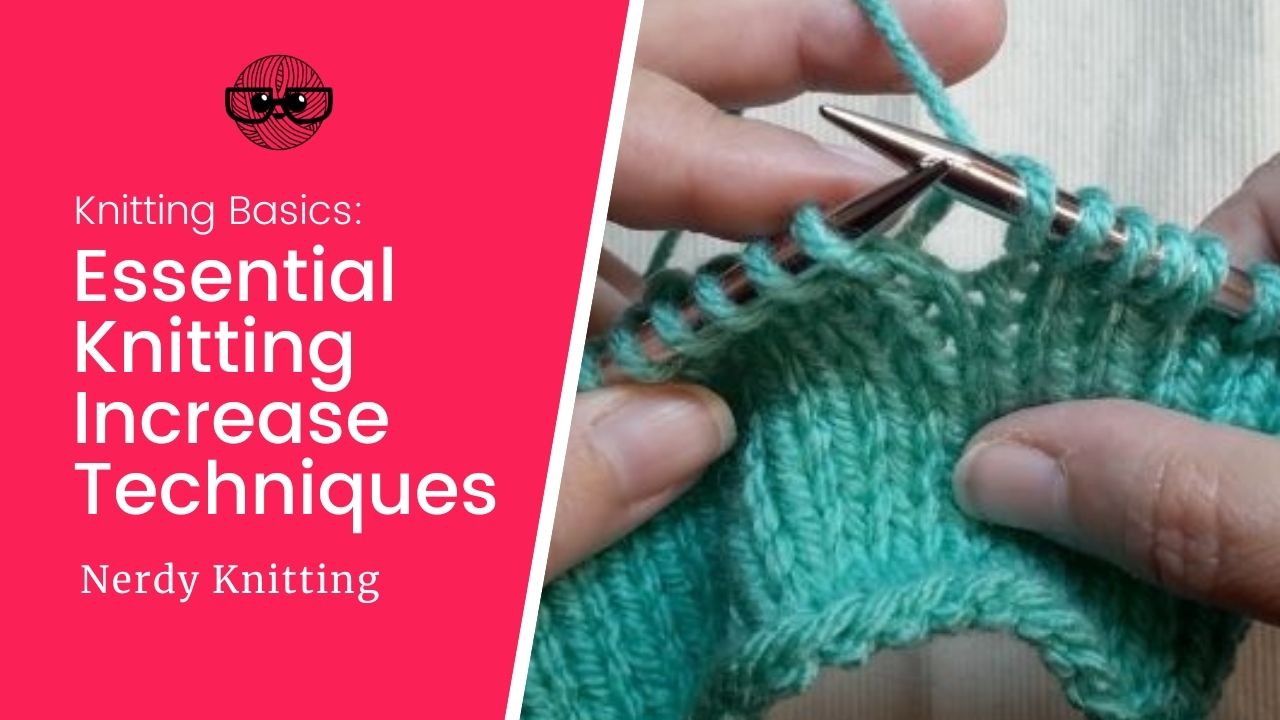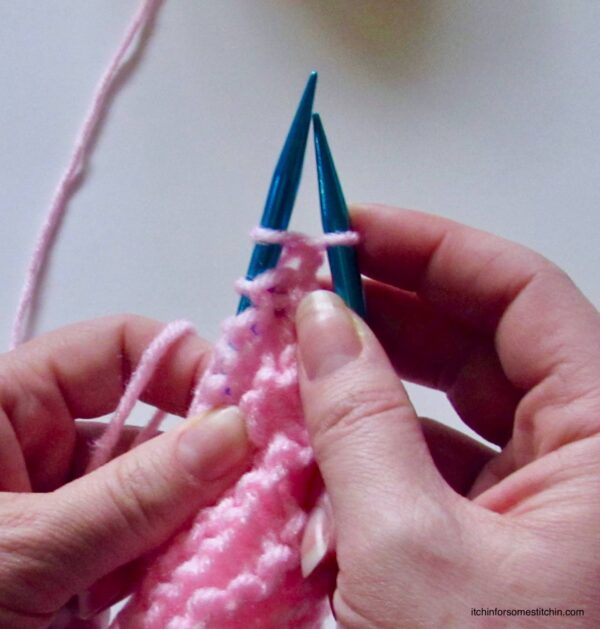How To Increase When Knitting
How To Increase When Knitting - Web knit the lifted stitch as normal and slide it off of the left needle, leaving the original stitch on the left needle (see photo #3). Next, take a week off, either lifting very light weights or taking a complete break from weight. A massive list of all the knitting increases and how to knit them. Knit a stitch, but don't slip the stitch off your left needle. There are many different ways to increase but we’ll focus on the four common increases that every knitter should be aware of. Increasing and decreasing stitches enables you to create knitted pieces with edges that taper and expand. Learn three types of knitting increases: There are several ways to increase, and each method adds extra stitches to the row unless they are paired with compensating decreases. Plus, get basic directions to tackle the. Usually, you can substituted one type for the other, but the stitch counts will need to be adjusted accordingly. Toy around with slipping and twisting stitches, and you might discover a great new technique! Web like decreasing, increases are used to shape a piece of knitting, this time making the piece larger by adding stitches. Web how to increase in knitting. Web knowing how to increase is an important skill for every knitter. Make one (m1) bar increase. Knit 1 front and back, purl 1 front and back; Increases allow you to expand the total number of stitches in a row or round. Some are barely perceptible and don’t disrupt the pattern, while some are more visible and can be used decoratively. Make one (m1) bar increase. Once you have learned how to. Knit a stitch, but don't slip the stitch off your left needle. However, you may see instructions. It's time to take it up a notch! Learn three types of knitting increases: Web © 2024 google llc. Usually, you can substituted one type for the other, but the stitch counts will need to be adjusted accordingly. Web it basically boils down to: Yo (yarnover), kfb (knit into the front and back of a stitch), make 1 (right and left) and the lifted increase (right and left). There are several ways to increase, and each method adds extra. The most basic way to increase is knitting in the front and the back of a stitch. Web increase the weight by 2.5 percent to 5 percent every week, maintaining good form. Once you have learned how to. How double increases are worked. Next, take a week off, either lifting very light weights or taking a complete break from weight. The most basic way to increase is knitting in the front and the back of a stitch. Web knowing how to increase is an important skill for every knitter. This is the simplest method of increasing and is particularly good for beginner knitters, but it does leave a small hole or eyelet in the knitted fabric. This adds one stitch,. Knit 1 front and back, purl 1 front and back; Increasing is used whenever a knitted piece needs to be wider, such as sleeve shaping. Instructions and tutorial video to teach these increases for beginner knitters: It's time to take it up a notch! This is useful for shaping fitted knit items, such as sweaters, hats, and mittens. In this video we will show you how to increase stitches in your knitting. Increasing and decreasing stitches enables you to create knitted pieces with edges that taper and expand. However, you may see instructions. Find out how to work four different increases to add stitches to your knitting. Yo (yarnover), kfb (knit into the front and back of a. Web it basically boils down to: How double increases are worked. Make one (m1) bar increase. Plus, get basic directions to tackle the. To get more stitches in knitting, an increase is needed. 1.3m views 14 years ago discover how to knit. Those that create stitches in the strand between the needles and those that create stitches in existing stitches. Some are barely perceptible and don’t disrupt the pattern, while some are more visible and can be used decoratively. How double increases are worked. Increasing is used whenever a knitted piece needs to. Web knit the lifted stitch as normal and slide it off of the left needle, leaving the original stitch on the left needle (see photo #3). Once you have learned how to. However, you may see instructions. The most basic way to increase is knitting in the front and the back of a stitch. This method creates a nearly invisible increase and is. Usually, you can substituted one type for the other, but the stitch counts will need to be adjusted accordingly. There are many different ways to increase but we’ll focus on the four common increases that every knitter should be aware of. In this article, we’ll take a look at each of these double increase methods (you can use the table of contents links in the box below to jump directly to a particular double increase method). Web it basically boils down to: What is stitch gauge and tension? This adds one stitch, which appears to come out of the right side of the original stitch column. To get more stitches in knitting, an increase is needed. Those that create stitches in the strand between the needles and those that create stitches in existing stitches. Web there are two different ways to make an extra stitch while you are knitting, one (kfb) leaves a little bar on the front of the work, and the other (m1) is virtually invisible. There are lots of ways to increase the number of stitches on your needle; Start shaping your knitting project by learning how to increase/decrease stitches.
How to Increase in Knitting (Essential Increases for Every Knitter

How To Increase In Knitting Made Easy for Beginners TREASURIE

How To Increase In Knitting Made Easy for Beginners TREASURIE

How to Knit an Increase Stitch 10 Steps (with Pictures) wikiHow

How To Increase In Knitting Made Easy for Beginners TREASURIE

How to Increase when Knitting YouTube

How To Increase In Knitting Made Easy for Beginners TREASURIE

How To Increase In Knitting Made Easy for Beginners TREASURIE

How to Increase a Stitch in Knitting With Just Two Simple Steps

How To Increase In Knitting Made Easy for Beginners TREASURIE
Yo (Yarnover), Kfb (Knit Into The Front And Back Of A Stitch), Make 1 (Right And Left) And The Lifted Increase (Right And Left).
There Are Several Ways To Increase, And Each Method Adds Extra Stitches To The Row Unless They Are Paired With Compensating Decreases.
Find Something You Can Knit Into Once Again.
Web How To Increase In Knitting.
Related Post: